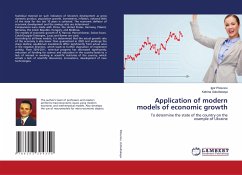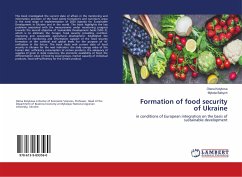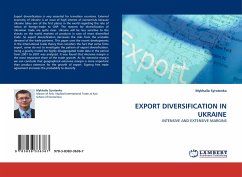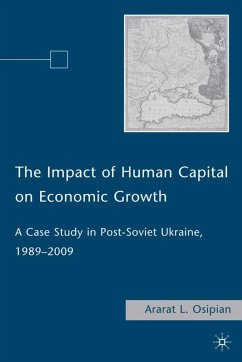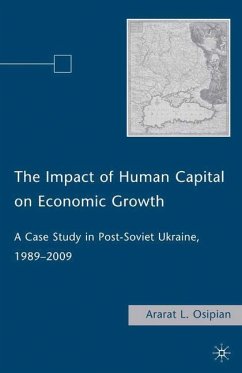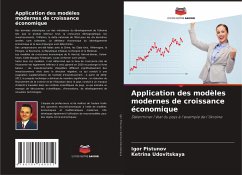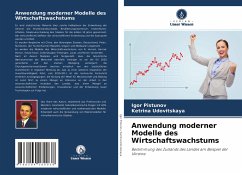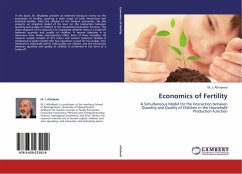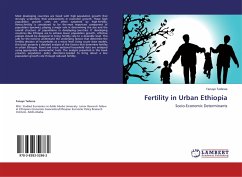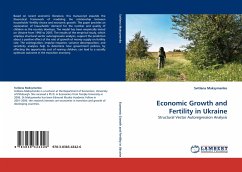
Economic Growth and Fertility in Ukraine
Structural Vector Autoregression Analysis
Versandkostenfrei!
Versandfertig in 6-10 Tagen
52,99 €
inkl. MwSt.

PAYBACK Punkte
26 °P sammeln!
Based on recent economic literature, this manuscript expands the theoretical framework of modeling the relationship between households fertility choice and economic growth. The paper provides an explanation of households demand for the number and quality of children as the country develops. The model has been empirically tested on Ukraine from 1996 to 2005. The results of the empirical study, which employs structural vector autoregression analysis, support the prediction about a positive effect of the rate of growth of money supply on fertility rate. The cointegration, impulse response, varian...
Based on recent economic literature, this manuscript expands the theoretical framework of modeling the relationship between households fertility choice and economic growth. The paper provides an explanation of households demand for the number and quality of children as the country develops. The model has been empirically tested on Ukraine from 1996 to 2005. The results of the empirical study, which employs structural vector autoregression analysis, support the prediction about a positive effect of the rate of growth of money supply on fertility rate. The cointegration, impulse response, variance decomposition, and sensitivity analyses help to determine how government policies, by affecting the opportunity cost of rearing children, can lead to a socially optimum outcome in the transition economy.



